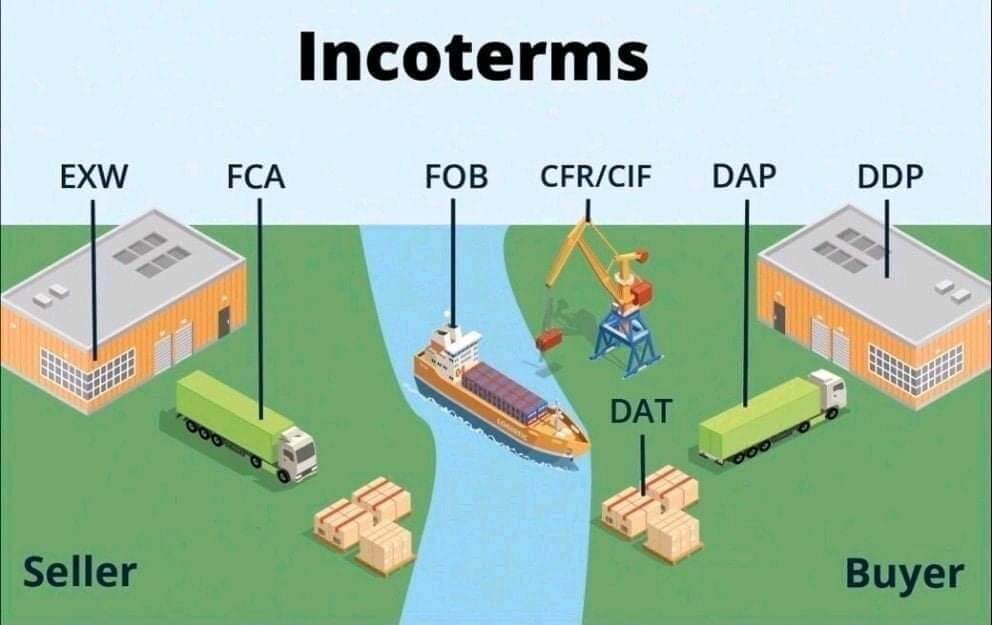Incoterms are a set of three-letter standard trade terms most commonly used in international contracts for the sale of goods.
✅They do define the obligations and costs between a buyer and seller
✅They do define the point at which the risk for cargo passes between buyer and seller
Let’s see some examples:
EXW (EX works) – is when the seller makes a product available at a designated location, and the buyer of the product must cover the transport costs. (e.g. warehouse).
FCA (Free Carrier) – the seller is responsible for export clearance and delivery of goods to the carrier at the named place of delivery.
FOB (Free on Board) – the time of delivery is defined when the goods are loaded to the vessel designated by the buyer, on the designated date and in the form prescribed by the port authorities.
CFR (Cost & Freight) – the moment of delivery and transfer of risk is when the goods are on board the vessel. Also, the buyer can already purchase the delivered goods.
CIF (Cost Insurance & Freight) – the products are delivered by the seller at the moment when the goods pass the ship’s side at the port of loading.
DAT (Delivery At Terminal) – refers to the seller delivering the goods, once unloaded from the arriving means of transport. Goods are placed at the disposal of the buyer at the named terminal, at the named port or place of destination.
DAP (Deliverd At Place) – the seller is responsible for delivery of the goods, ready for unloading, at the named place of destination. The seller assumes all risks involved up to unloading. Unloading is at the buyer’s risk and cost.
DDP (Delivered Duty Paid) – The seller delivers the goods when the goods are placed at the disposal of the buyer, cleared for import on the arriving means of transport ready for unloading at the named place of destination.

